Dell unveils amazing Duet dual-screen laptop and Ori foldable PC concepts
Dell's two new concepts push computing forward in unique ways
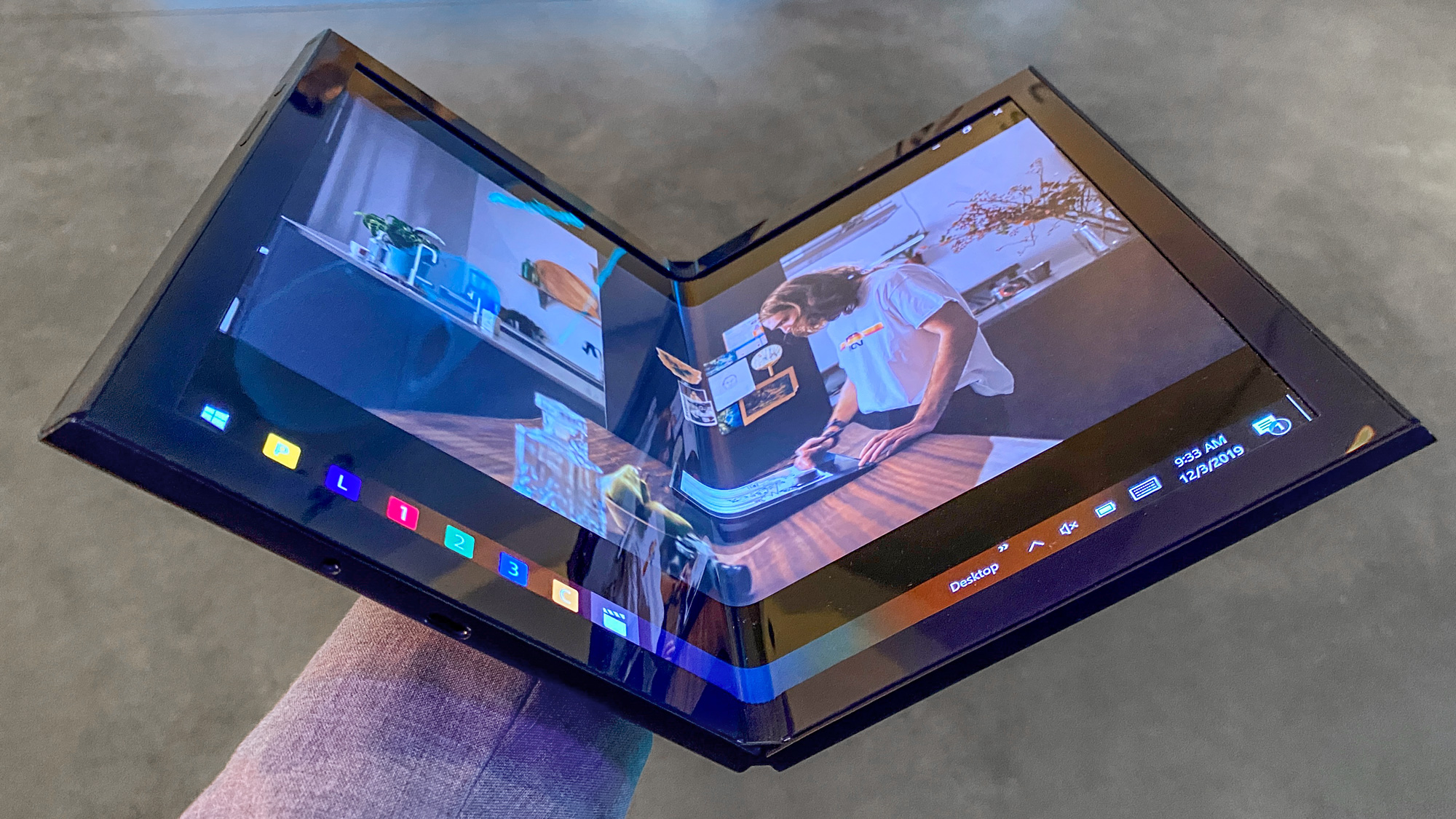
This year is going to be a very interesting proving ground for dual-screen and foldable PCs, and Dell is at CES 2020 showing off two concept devices that tease its vision for the future: Concept Duet and Concept Ori.
The Ori looks similar to Lenovo’s ThinkPad X1 Fold. It packs a 13-inch OLED display and can fold in half to be used as a mini laptop. But the Duet is even more intriguing because of what you can do with the software gestures and Bluetooth keyboard.
Dell Concept Ori
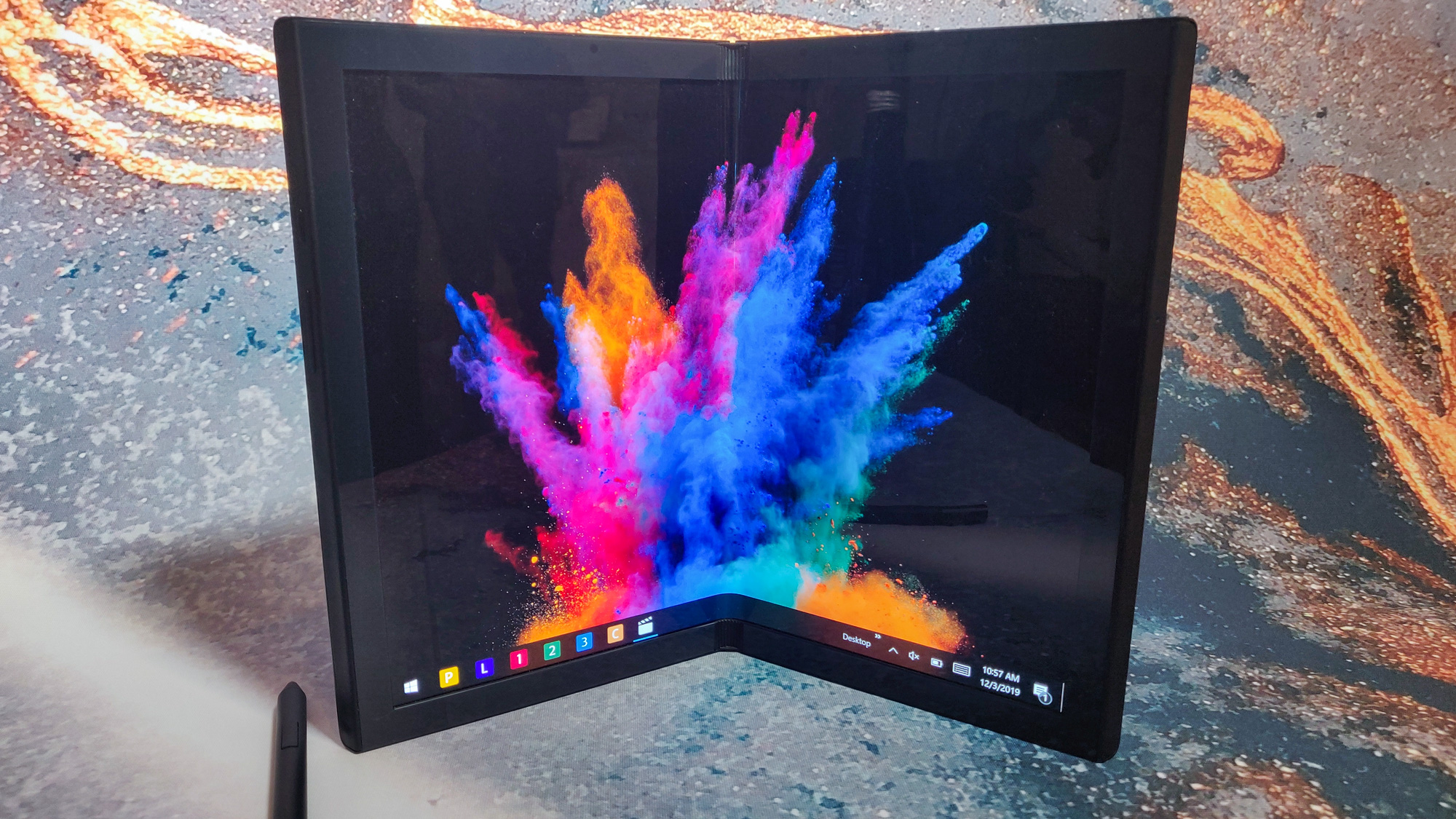
The Dell Concept Ori features a 13.4-inch flexible and plastic OLED display. This device is designed for portability, so it’s best to think of it more as a supercharged tablet than a full-on laptop replacement.
Because of its versatility, you can use the Ori with one app occupying one side of the display and use another app on the other side. Or you can go full-screen mode with a single app, which is especially handy for watching videos.
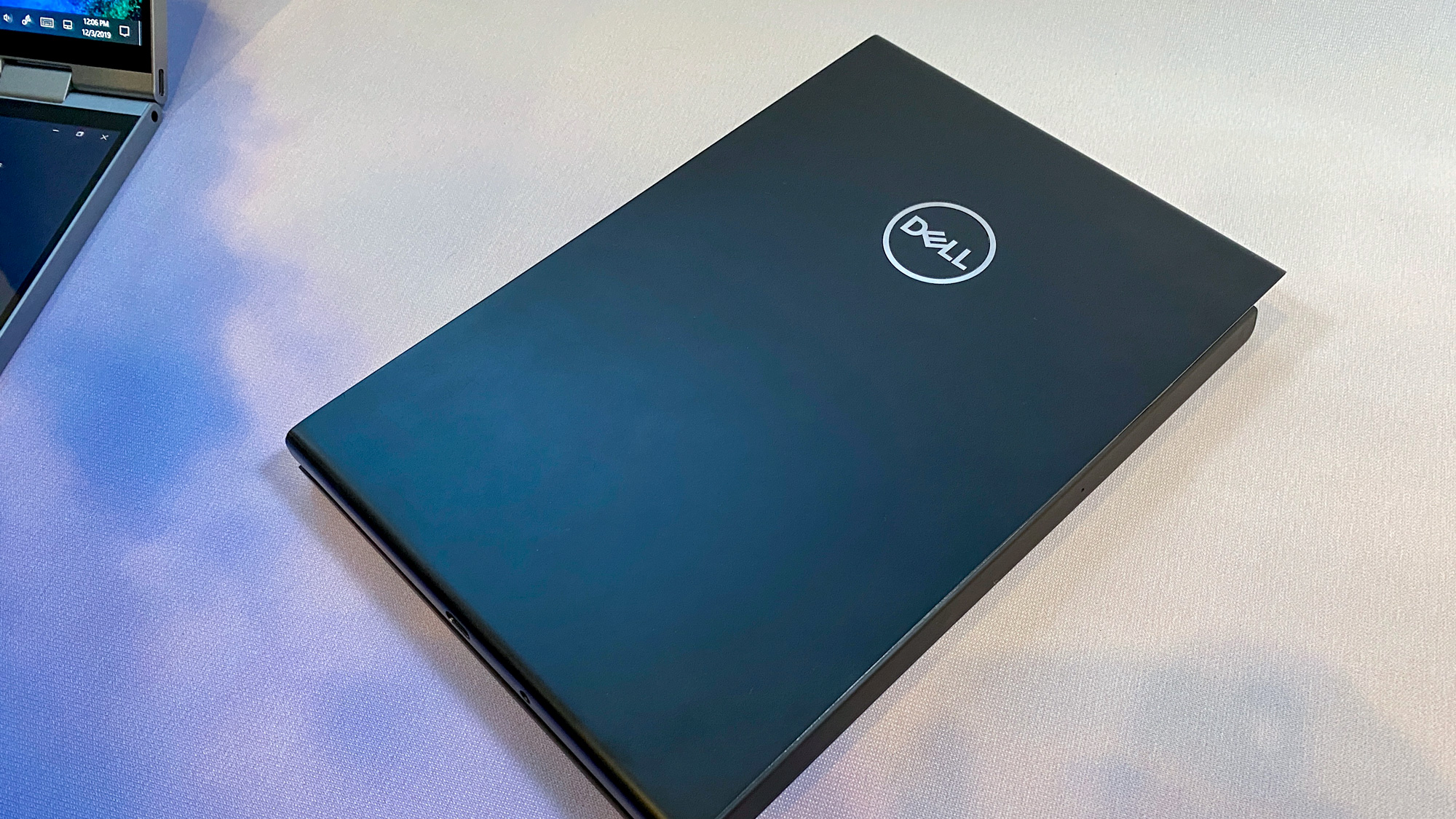
The Concept Ori can fold in half so that you can use the bottom portion as a touchscreen keyboard, but the top display gets a lot smaller in this mode.
I like that the Concept Ori is remarkably compact when folded up. Its small enough that it could easily fit into a pocketbook or smaller bag.
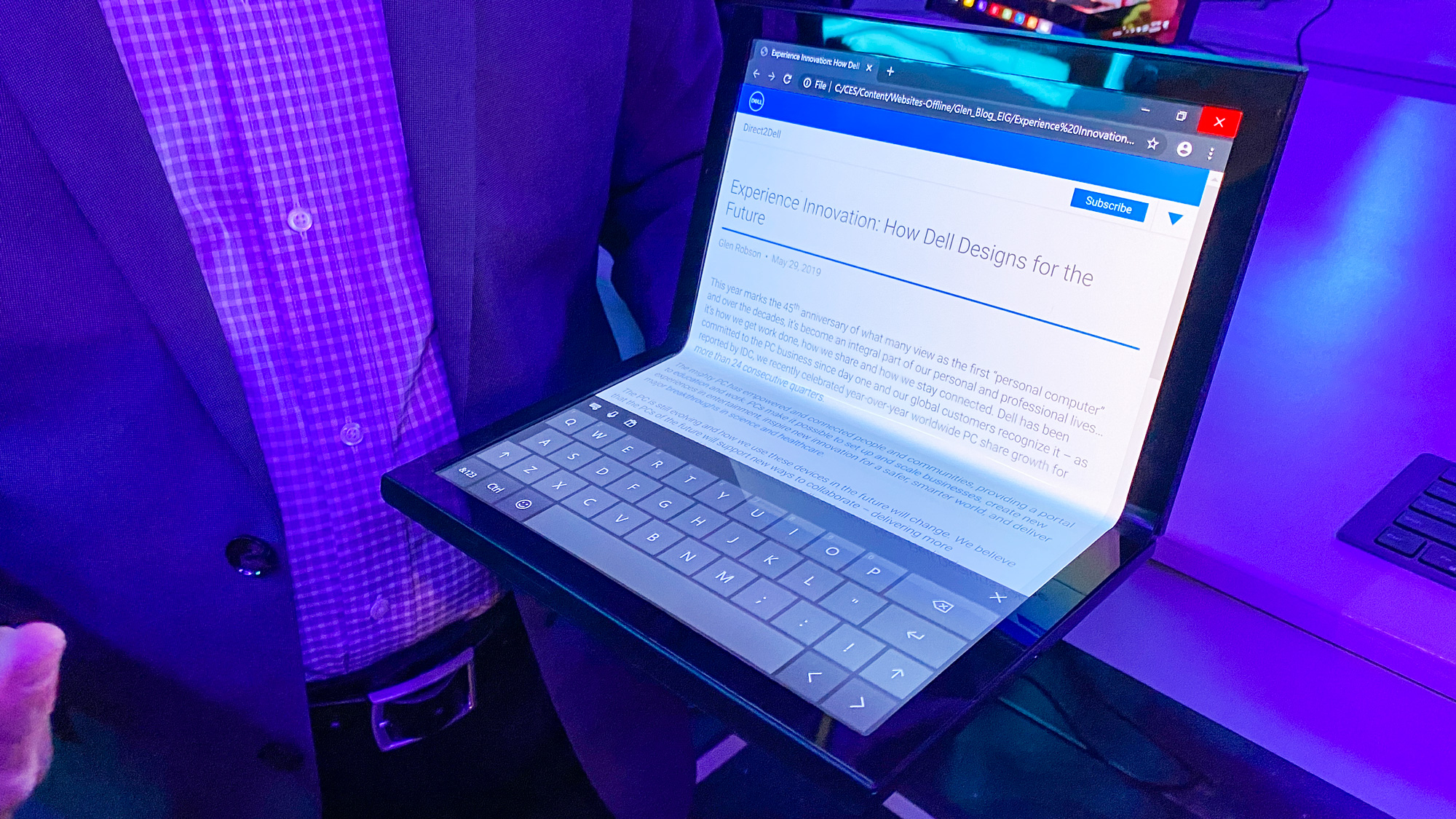
One thing I don’t like about this concept is that he bezels around the screen are relatively thick, which doesn’t look great but does help prevent accidental screen touches. I could also make out the crease in the middle of the screen more easily than I could on the ThinkPad X1 Fold.
Sign up to get the BEST of Tom's Guide direct to your inbox.
Get instant access to breaking news, the hottest reviews, great deals and helpful tips.
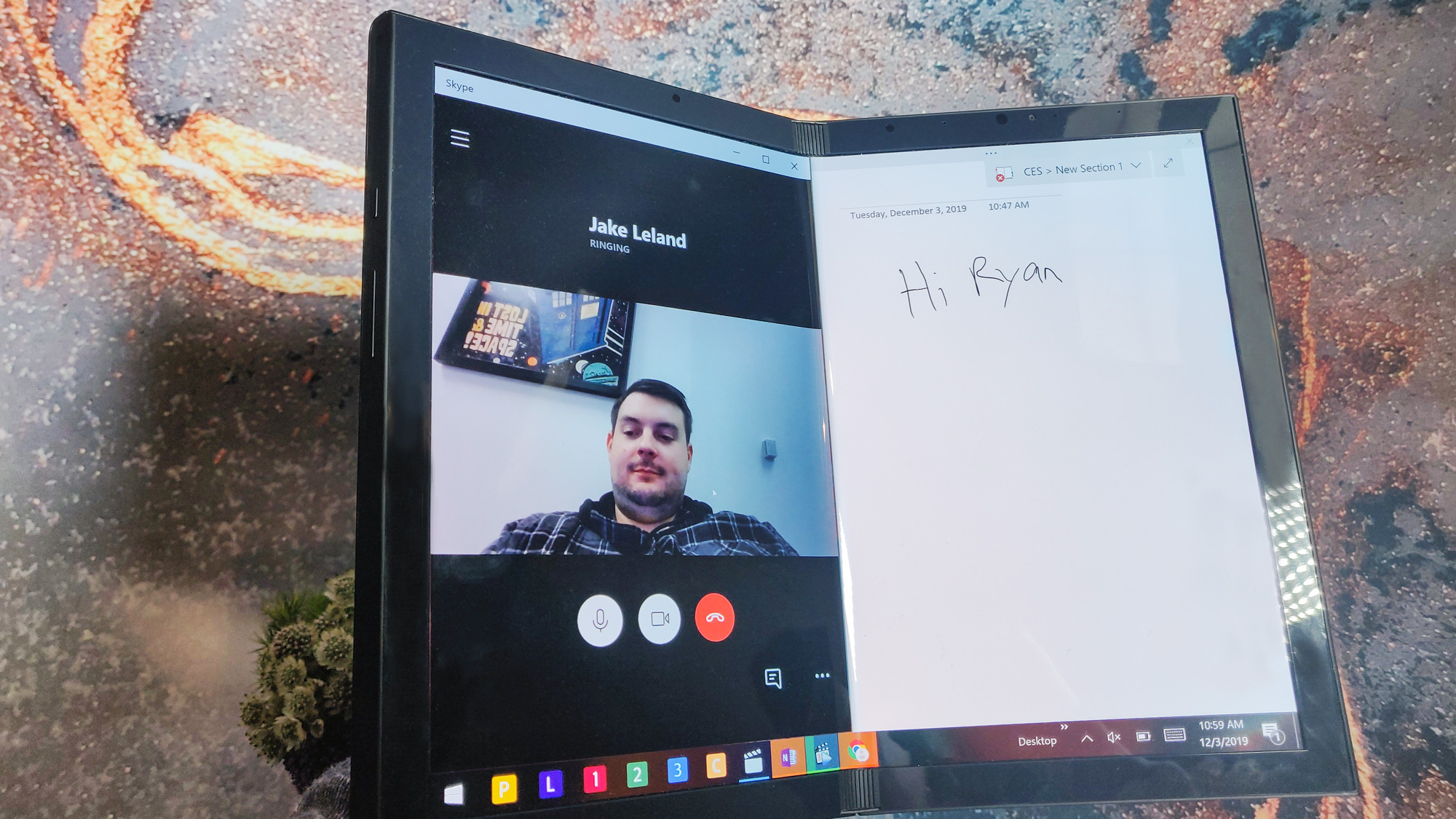
We’ll have to see if Dell brings the Ori to market but I wouldn’t be surprised to see the company wait at least until Windows X debuts towards the end of 2020. That software will be much better optimized for designs like this.
Dell Concept Duet
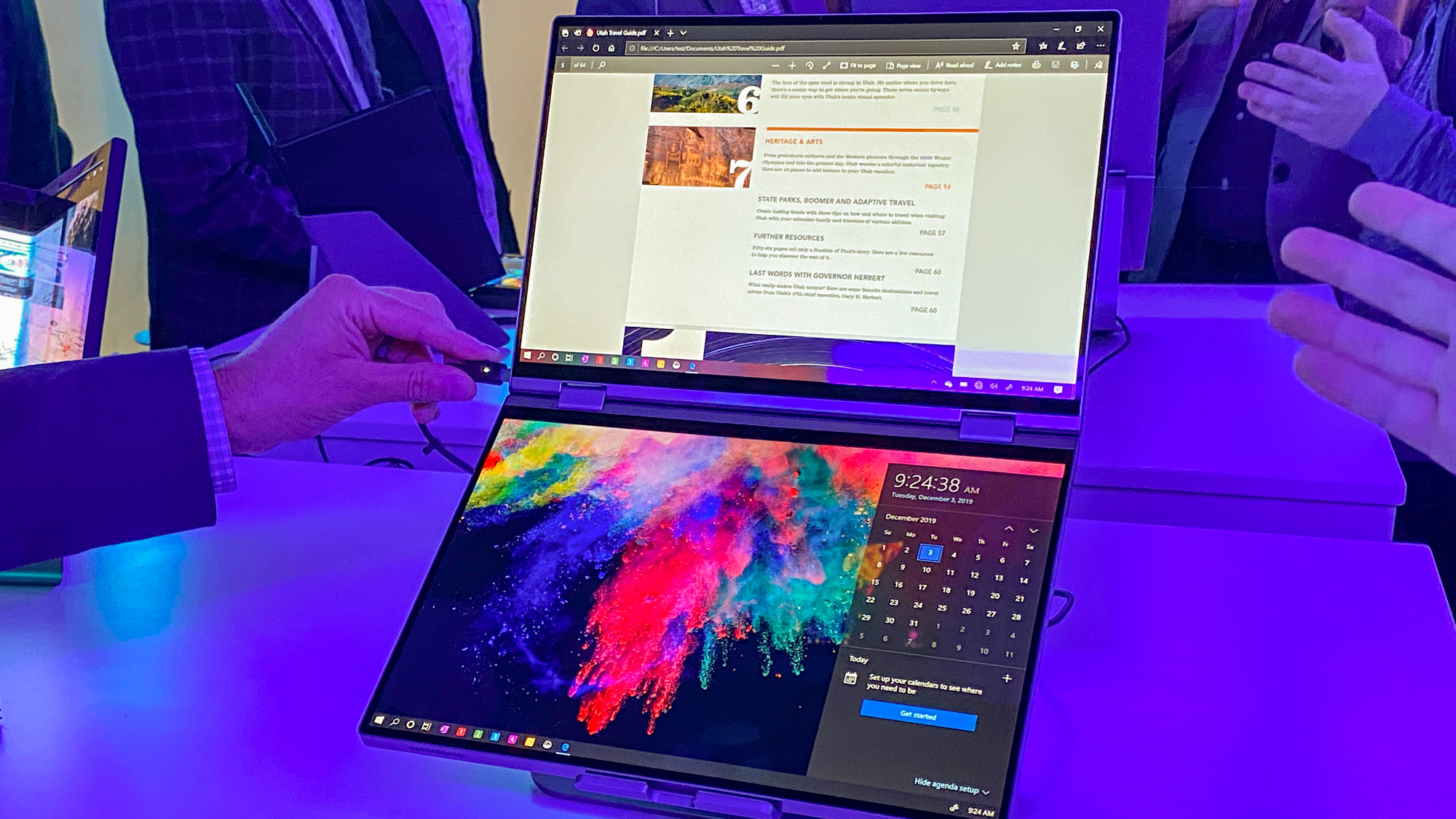
The Dell Concept Duet doesn’t have a foldable display like the Ori. Instead it leverages dual 13.4-inch LCDs to replace your laptop and let you do things traditional notebooks just can’t do.
Say you’re planning a trip. You can browse the brochure on the left display by scrolling up and down while taking notes on the right side of the screen with a pen.
You can also capture details from the brochure and put it on the right side and then annotate it. The idea is that the Duet gives you the versatility of multiple monitors in a single device.
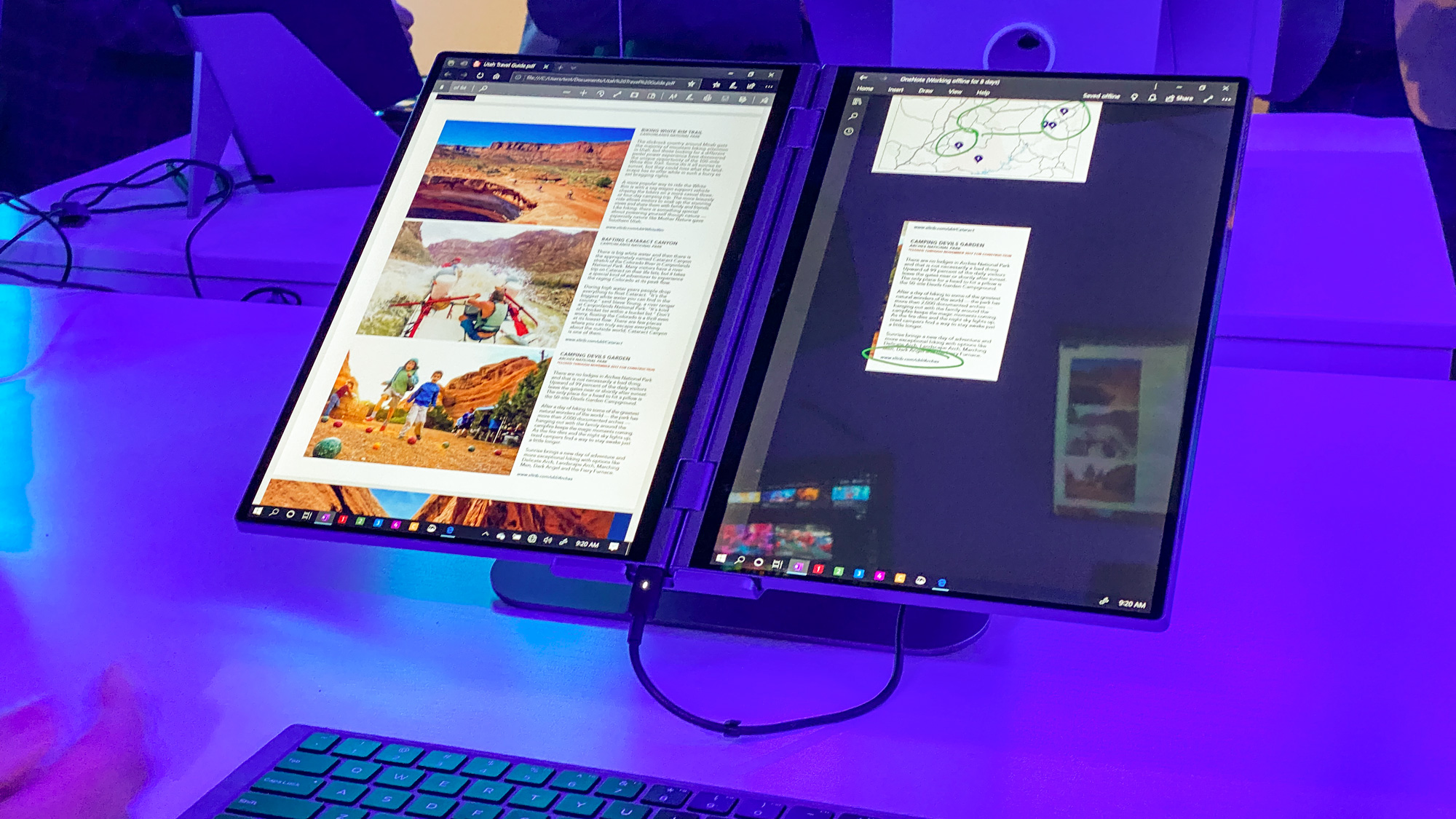
If you want to multitask with two screens on top of each other, you could use the Duet’s top display to hold a Skype call with colleagues while taking notes or reviewing a presentation on the bottom screen.
Want a truly immersive experience? The Duet lets you use leverage both displays at once for viewing content, whether you’re browsing the web or looking at designs. A simple three-finger press on the top of the display makes it easy to toggle between these modes.
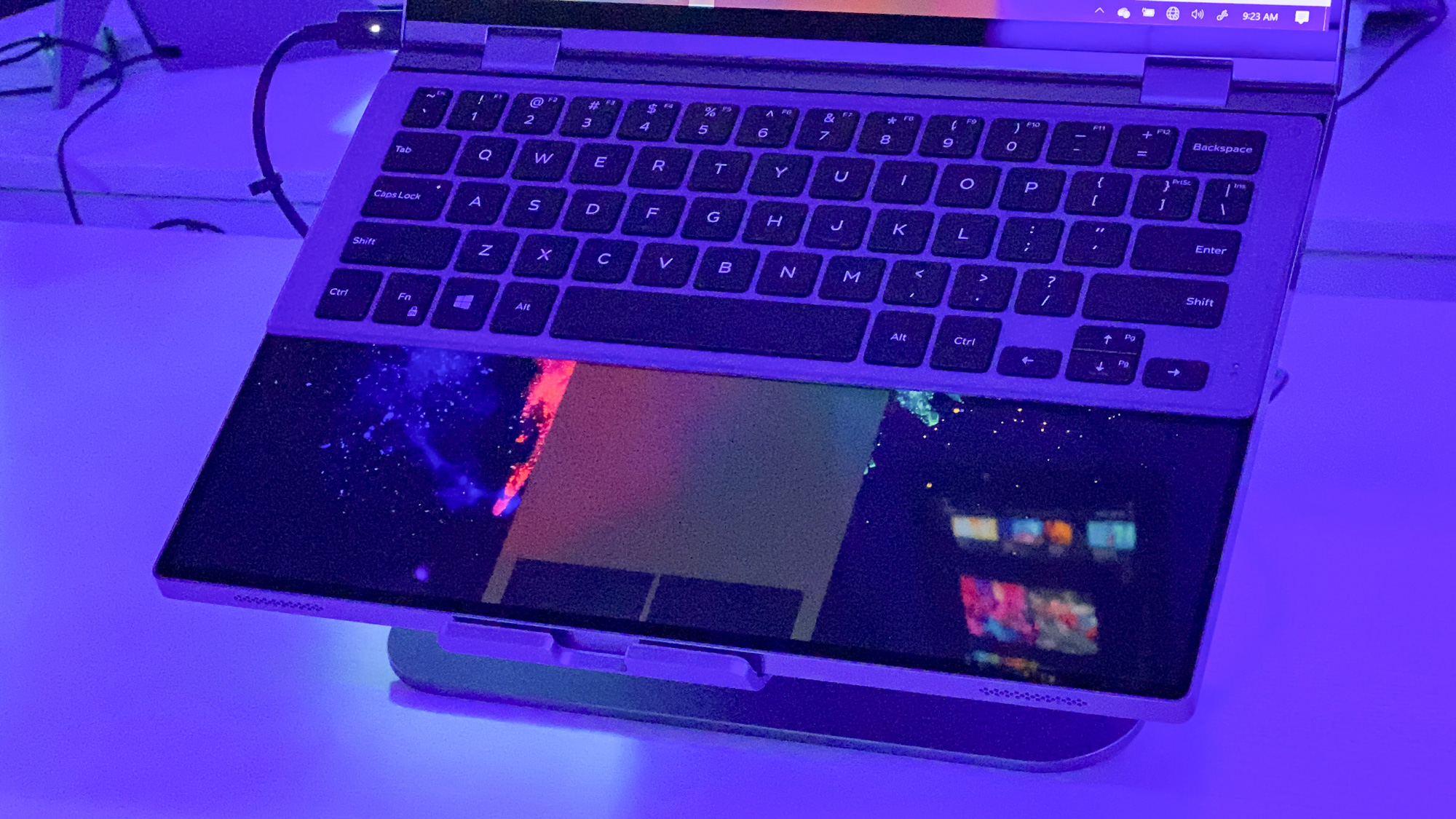
But this is where the real fun starts. The Duet comes with a physical keyboard you can place on the bottom screen to use, so you basically have one and a half screens in this mode. Even better, as you slide the keyboard up on the bottom display a virtual touchpad appears underneath it right on the glass.
When you’re done with the keyboard, it attaches magnetically to the bottom of the Duet for easy storage.
Outlook
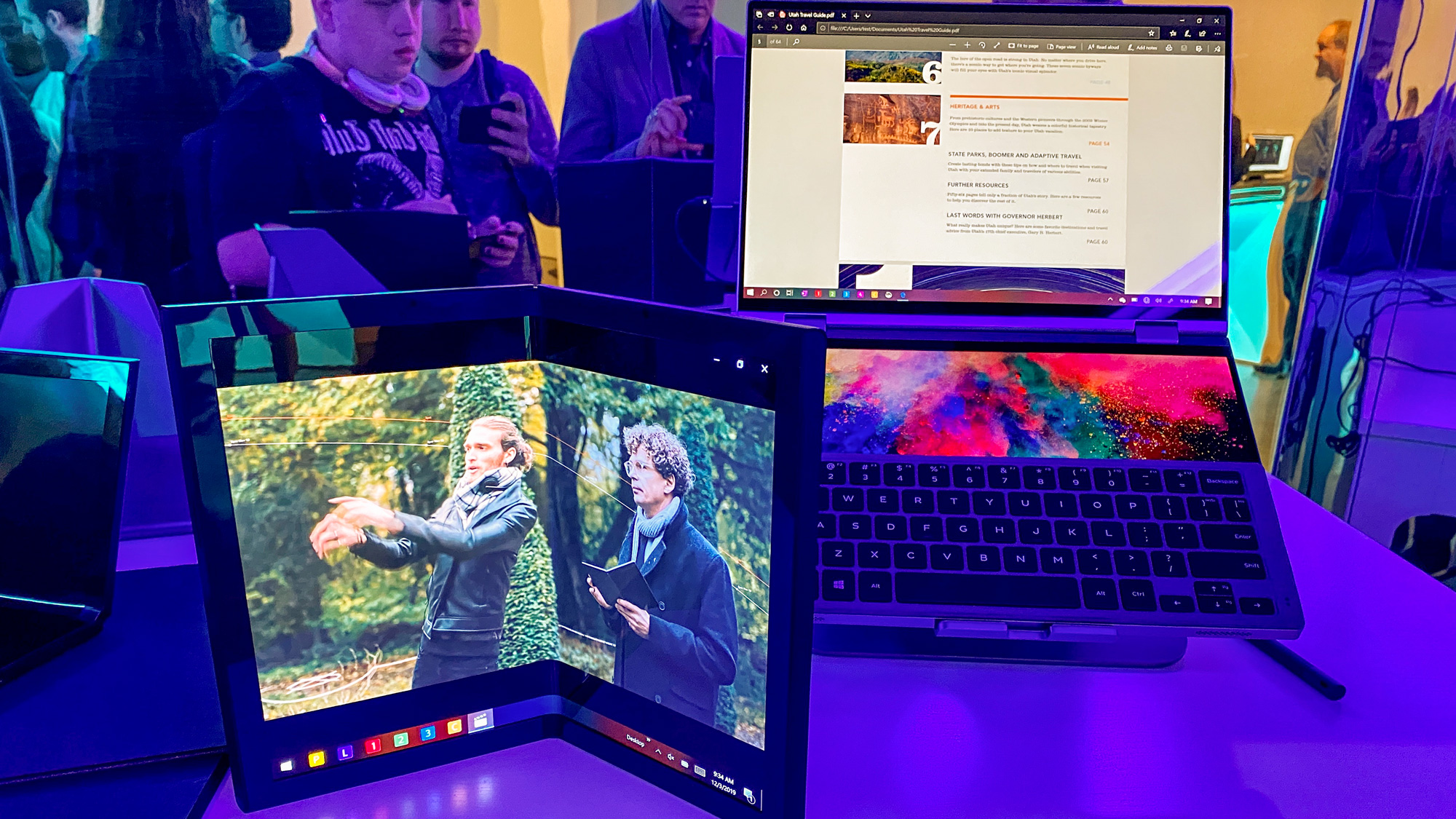
While both the Ori and Duet are innovative in their own ways, I believe the dual-screen Duet is something that shoppers would gravitate towards sooner than later. You don’t have to give up a physical keyboard, and it looks more like a traditional laptop.
The Ori could take off, but I see it as a secondary device, and I’d like to learn more about what the software will be able to do and potential use cases before it graduates from concept to actual product.
Be sure to check out our CES 2020 hub for the latest news and hands-on impressions out of Las Vegas.
Mark Spoonauer is the global editor in chief of Tom's Guide and has covered technology for over 20 years. In addition to overseeing the direction of Tom's Guide, Mark specializes in covering all things mobile, having reviewed dozens of smartphones and other gadgets. He has spoken at key industry events and appears regularly on TV to discuss the latest trends, including Cheddar, Fox Business and other outlets. Mark was previously editor in chief of Laptop Mag, and his work has appeared in Wired, Popular Science and Inc. Follow him on Twitter at @mspoonauer.

